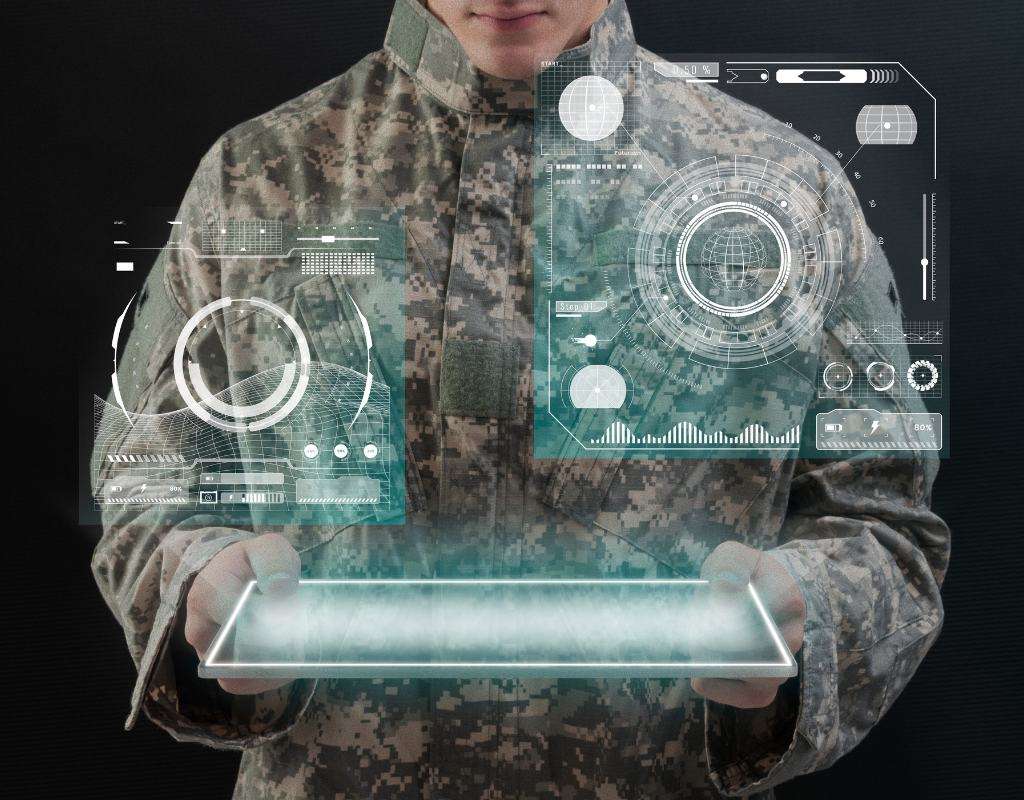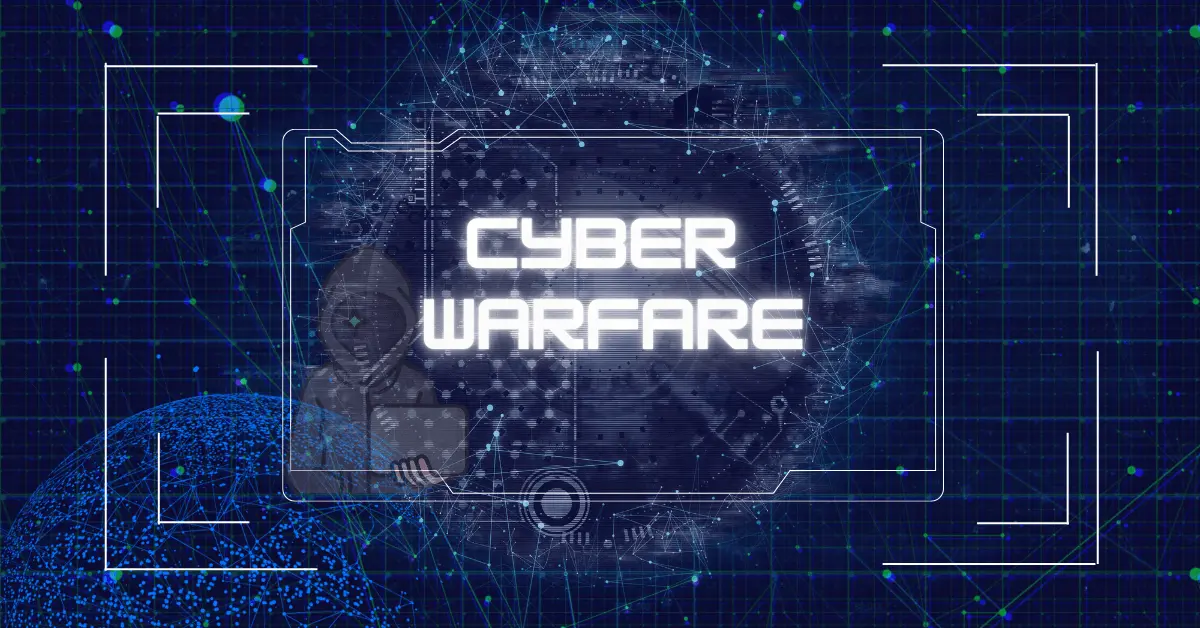💻 While nations continue to maintain conventional military forces, the most devastating attacks of the 21st century might not come from missiles or tanks, but from lines of malicious code. With over 60% of critical infrastructure now connected to the internet, and global cybercrime damages predicted to reach $10.5 trillion annually by 2025, the stakes have never been higher. Let’s dive into the complex world of cyber warfare, exploring its sophisticated weapons, vulnerable targets, and the cutting-edge defenses being developed to counter these invisible threats. We’ll examine how digital warfare is reshaping military strategy, discuss the tools in a cyber warrior’s arsenal, and understand the critical importance of protecting our interconnected world.🛡️
What Is Cyber Warfare?

Cyber warfare refers to the use of digital attacks by one nation to disrupt, damage, or infiltrate the computer systems of another nation. It involves state-sponsored offensive operations conducted in cyberspace that are designed to compromise critical infrastructure, steal sensitive data, or undermine national security. Unlike traditional warfare, cyber warfare takes place in the digital realm, targeting computer networks, information systems, and online platforms.
In cyber warfare, the “battlefield” isn’t a physical location but rather a virtual one where malicious actors use sophisticated tools, malware, and tactics to carry out attacks. These operations can range from data breaches and denial-of-service (DDoS) attacks to more complex threats like ransomware, espionage, and election interference.
Key Characteristics of Cyber Warfare:
- State-Sponsored Activities: Often backed by governments to achieve strategic objectives.
- Targets Critical Infrastructure: Aims at power grids, financial systems, transportation networks, and military communication channels.
- Invisible and Asymmetric: Can be launched from anywhere, making attribution and retaliation challenging.
- No Physical Damage: Unlike traditional warfare, cyberattacks can paralyze a nation without a single bullet fired.
Common Objectives of Cyber Warfare:
- Disrupt National Security: Cripple military communication or defense systems.
- Economic Damage: Attack financial institutions to destabilize economies.
- Steal Classified Information: Espionage for political or military advantage.
- Spread Disinformation: Manipulate public opinion or influence elections.
The Impact of Cyber Warfare on Global Security

Cyber warfare poses significant risks to national security, economy, and society. Below are some of its major implications:
1. National Infrastructure Vulnerability
Critical infrastructure like power grids, water supplies, hospitals, and transportation systems are increasingly interconnected. A targeted cyberattack on these systems can cause widespread chaos, disrupt essential services, and even result in loss of life.
2. Economic Consequences
Cyberattacks can cripple financial institutions, resulting in severe economic consequences. For instance, a breach in a central bank’s system could lead to significant financial losses, impacting a country’s economy.
3. Political and Military Conflicts
Cyber warfare can be used to influence political landscapes, interfere with elections, or disrupt military operations. For example, state-sponsored hackers have been known to target government agencies to gather intelligence or sabotage military efforts.
Famous Cyber Warfare Incidents
1. Stuxnet (2010)
One of the most well-known cyber weapons, Stuxnet, was used to sabotage Iran’s nuclear enrichment program. The malware specifically targeted centrifuges, causing them to spin out of control and damage themselves.
2. The Sony Pictures Hack (2014)
Allegedly carried out by North Korea, the attack on Sony Pictures was in response to a film that portrayed the country’s leader in a negative light. Hackers released confidential data, including unreleased movies, employee records, and emails.
3. The NotPetya Attack (2017)
A devastating ransomware attack that originated in Ukraine, NotPetya spread across the globe, affecting businesses, hospitals, and government agencies. The attack caused billions of dollars in damage and showcased the destructive potential of cyber warfare.
How Organizations Can Defend Against Cyber Warfare
As cyber threats become more sophisticated, organizations must take proactive measures to protect themselves. Here are some strategies:
A. Military Cyber Defense Strategies
Military organizations employ multi-layered defense approaches combining both offensive and defensive capabilities. The core components include:
- Advanced Threat Detection Systems
- Real-time Monitoring Networks
- AI-powered Response Mechanisms
- Zero-trust Architecture Implementation
- Quantum-resistant Encryption
B. International Cooperation Frameworks
Cross-border collaboration has become essential for effective cyber defense:
- Joint Cyber Defense Centers
- Threat Intelligence Sharing
- Unified Response Protocols
- International Training Programs
- Common Security Standards
C. Implement Strong Cybersecurity Frameworks
Regularly update software, use firewalls, and deploy robust intrusion detection systems. A layered approach to security can prevent unauthorized access.
D. Use of Artificial Intelligence (AI) and Machine Learning
Leveraging AI and machine learning can enhance cybersecurity defenses by identifying anomalies, detecting threats in real-time, and responding to attacks faster than traditional systems.
Future of Cyber Warfare

As technology advances, cyber warfare will continue to evolve. With the rise of artificial intelligence, quantum computing, and the Internet of Things (IoT), new vulnerabilities will emerge, and attackers will become more creative in exploiting them. Nations are investing heavily in developing cyber defense and offensive capabilities, which may result in an escalating arms race in cyberspace.
The line between cyber warfare and traditional warfare will continue to blur, with cyber capabilities increasingly integrated into military strategies. This shift necessitates international cooperation, better regulatory frameworks, and continuous innovation in cybersecurity.
AI-powered Warfare Systems
AI systems are revolutionizing military operations through advanced decision-making capabilities and predictive analytics. Machine learning algorithms now enable:
- Real-time threat assessment
- Autonomous target identification
- Battlefield situation awareness
- Combat pattern recognition
Space-based Cyber Operations
Military operations are increasingly extending into space through:
- Satellite-based communication disruption
- GPS warfare capabilities
- Orbital asset targeting
- Space-based reconnaissance systems
Conclusion
Modern cyber warfare has fundamentally transformed the battlefield, shifting conflicts from physical territories to digital domains. From sophisticated malware to infrastructure attacks, nations must now fortify both their physical and digital defenses to protect their sovereignty and citizens. The evolution of defense mechanisms and international frameworks demonstrates our growing awareness of these emerging threats.
As technology continues to advance, the line between conventional and cyber warfare will further blur. Organizations and nations must prioritize cybersecurity measures, invest in defensive capabilities, and work collaboratively to establish robust international protocols. Only through global cooperation and continued vigilance can we hope to maintain stability in this new era of digital conflict.
About Us
NuageNetz IT Services Pvt. Ltd. is a cutting-edge IT company that specializes in Cloud Computing, Web Development, DevOps and Agile Methodologies. Our team of skilled professionals is dedicated to providing exceptional services to our clients using the latest technologies and tools
Got Something to say about our Blog?
Have something to say? Drop your thoughts, feedback, or questions in the comments below!
